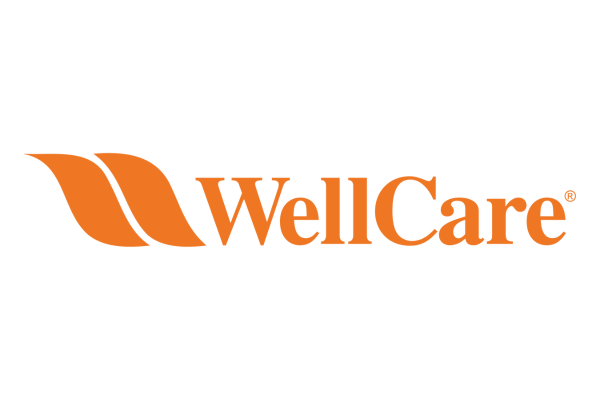
Thursday, Aug. 14, 2025
8 a.m.â3:15 p.m.
McKimmon Conference and Training Center at NC State
1101 Gorman St., Raleigh, NC 27606
Healing the Water: Transforming Systems for Black Maternal & Infant Health
$50 registration fee
This one-day educational activity will bring together an array of stakeholders to address the disparities in maternal and infant health outcomes within the Black community. Through an evidenced based exchange of ideas, lessons learned and best practices, this conference will provide collective knowledge and expertise, fostering a more inclusive, responsive and effective approach to care.
From intra professional collaborations to grassroots initiatives, this conference will highlight the importance of a collective commitment to prioritizing the needs of Black birthing persons. Please come join us as we strengthen bonds, forge new partnerships and chart a course towards improved health outcomes in our communities.
Credit
ÐĄŧÆŅžĘÓÆĩ AHEC CEU: ÐĄŧÆŅžĘÓÆĩ AHEC will provide .5 CEU to participants upon completion of this activity.
A participant must attend 100% of the day to receive credit. Partial credit will not be awarded.
Contact Hours: ÐĄŧÆŅžĘÓÆĩ AHEC will provide up to 5.0 Contact Hours to participants.
In partnership with:

Agenda
8 a.m. Breakfast and Networking
8:30 a.m. Welcome
9:10 a.m. Plenary Session: From Policy to the Perinatal Bedside: Bridging Power and Practice to Heal the Systems Impacting Birth
- Dr. Michelle Benoit-Wilson
- Tina Braimah
- Senator Natalie Murdock
- SteâKeira Shepperson
- Moderator: Stephanie Baker, PhD, MS, PT
10:30 a.m. Breakout Sessions
- From Punishment to Protection: Reentry, Birth Equity and Advocacy for Mother; Emunah âMonaâ Evans, Benevolence Farms, Bonding Families
- Transforming Maternity Care for Black Birthing People: Relationship-Centered, Anti-Racist Practices from a Qualitative Study of High-Risk Pregnancies; Shewit Jaynes, PhD, MSPH, RN, Durham VA and Duke University
- From Grief to Prevention: Tackling Preventable Stillbirth through Systems Change and Collective Power; Ana Lepe Vick, PUSH for Empowered Pregnancy and Tomeka Issac, Jaceâs Journey
11:30 a.m. Break
11:45 a.m. Lunch
12:45 p.m. Breakout Sessions
- Centering Black Mothersâ Voices: Addressing Systemic Barriers to Equity in Maternal and Infant Outcomes; Tiara Morris, By Mother-Action4Equity and Sharlee Hainesworth, Action4Equity
- Compassionate OB Care; Lorraine Wilson Batts, Lorraine Nurse Consulting
- The Invisible Struggle of Fatherhood - Making the Invisible Visible; Brandon Diggs Williams, Sr., LCSW, The Center of Transformation, PLLC
1:45 p.m. Break
2 p.m. Interactive Session: Shifting the Lens: Applying the Groundwater Analysis to Transform Systems
Deena Hayes-Greene, Black Pearls Society, Racial Equity Institute
2:45 p.m. Closing
Session Descriptions
Plenary Session: From Policy to the Perinatal Bedside: Bridging Power and Practice to Heal the Systems Impacting Birth
Healing maternal and child health systems requires a collective effort across sectors. This cross-disciplinary plenary brings together a North Carolina Senator, an OB-GYN, a midwife, and a doula to reflect on the deep-rooted inequities in birth outcomesâand how we can transform them through shared power and purpose. Together, these voices will explore what it means to listen to communities, center lived experiences, honor traditional birth knowledge, and align clinical and policy efforts with grassroots movements. Designed for a diverse audience, this session invites us all, whether in the clinic, the capitol, or the community, to imagine and build a future where every birthing person is seen, heard, and supported.
- Dr. Michelle Benoit-Wilson
- Tina Braimah
- Senator Natalie Murdock
- SteâKeira Shepperson
- Moderator: Stephanie Baker, PhD, MS, PT

Dr. Michelle Benoit-Wilson, OB/GYN
Health Equity Strategist
Founder of HerHealthMD, PLLC
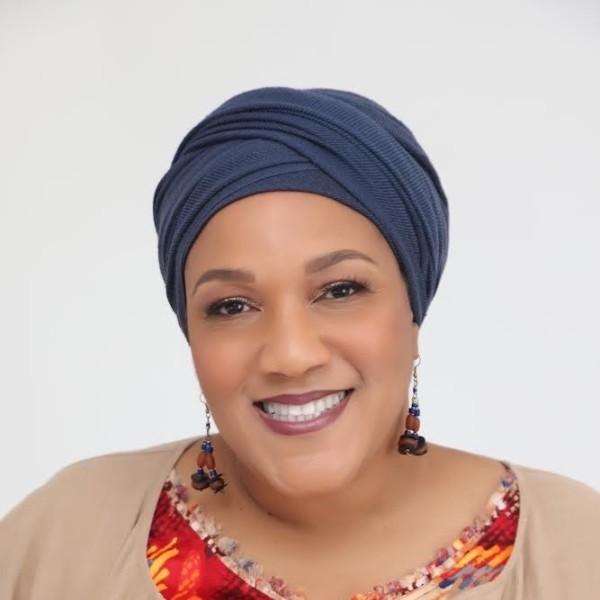
Tina Braimah, MSN, CNM, CPM
Founder and Executive Director
Aya Birth & Community Wellness
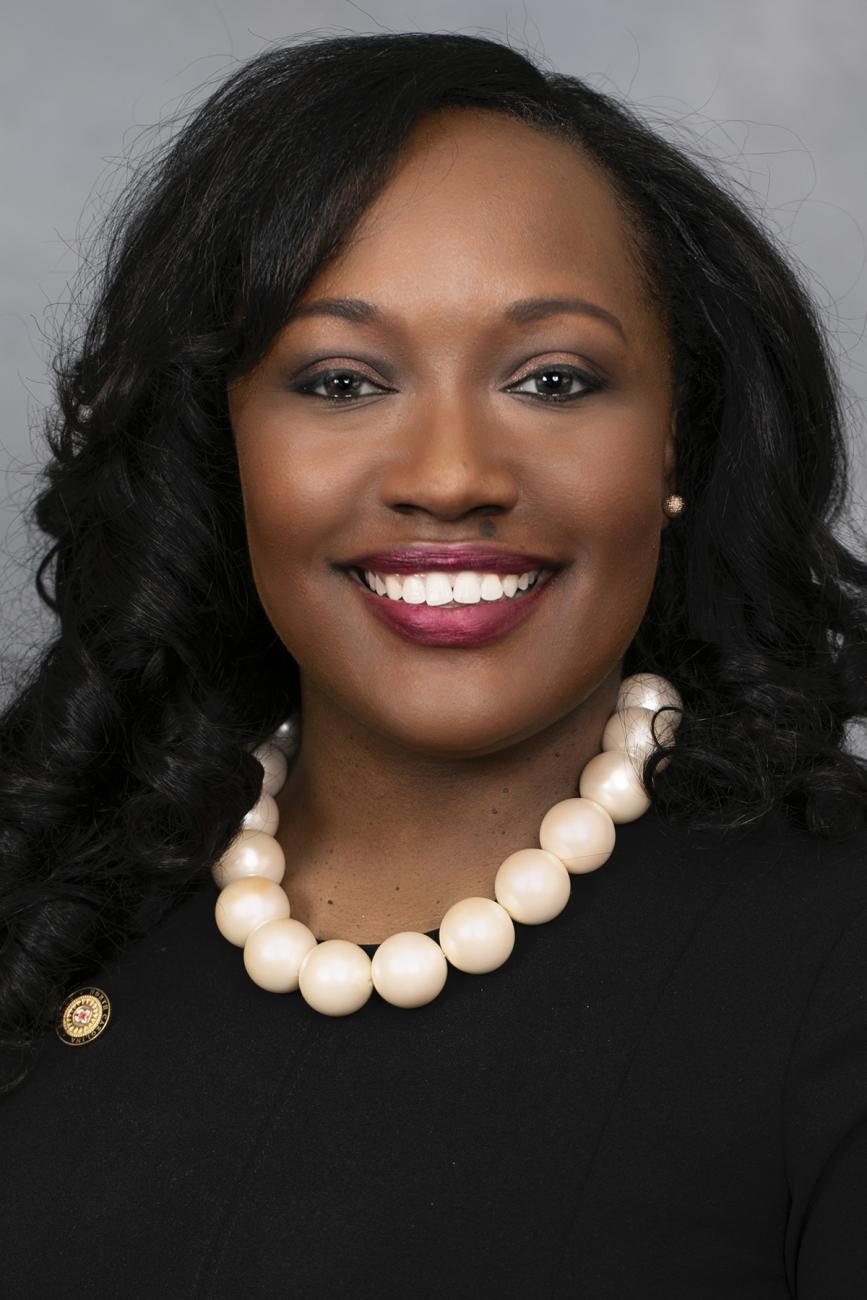
Senator Natalie Murdock
D-N.C., 20th District
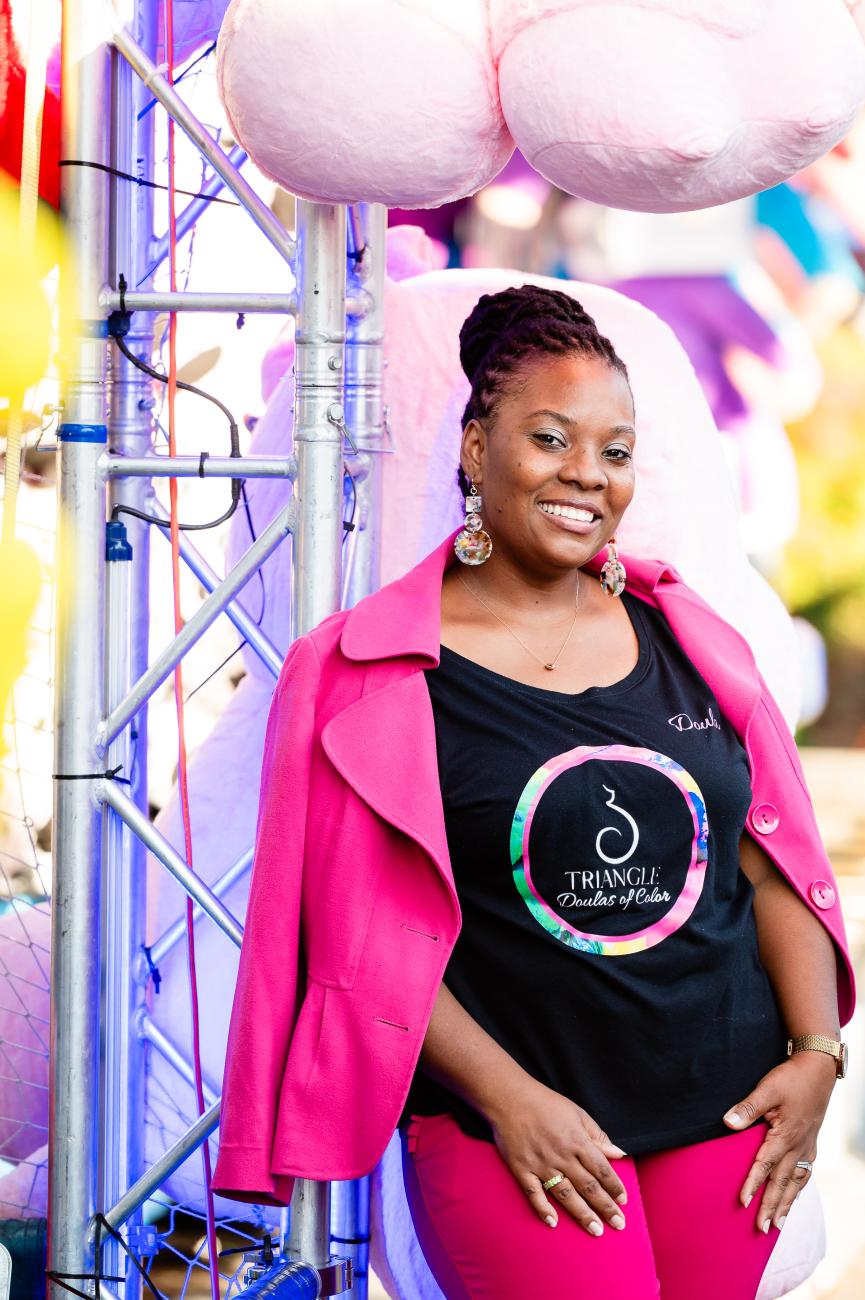
SteâKeira Shepperson
Doula, Childbirth Educator, Owner,
Triangle Doulas of Color
10:30â11:30 a.m. Breakout: From Punishment to Protection: Reentry, Birth Equity and Advocacy for Mothers
I know what it means to be separated from my children because of incarceration and what it takes to rebuild that bond after release. Iâve navigated systems that were never meant to support me as a mother, and Iâve fought for my right to parent with dignity and love, despite the barriers stacked against me.
In From Punishment to Protection, I will speak from lived experience about how overlapping systems of criminal justice, public health, and child welfare create challenges for Black mothers and birthing people, especially those impacted by incarceration. Iâll share my personal story of separation and reunification, and how Iâve turned that experience into a commitment to advocacy, healing and change.
This presentation will explore the deeper structural causes of poor maternal and infant health outcomes in Black communities: systemic racism, housing instability, gaps in healthcare access, and lack of support during reentry. Iâll also highlight the resilience and power of formerly incarcerated Black mothers who are leading the way forward.
My goal is to move people from awareness to action. Iâll offer evidence-informed solutions and community-based strategies that center healing, family restoration, and long-term support, like peer-led parenting programs, trauma-informed care, housing, healthcare access, and policy reform that prioritizes families. When we advocate for Black mothers impacted by incarceration, weâre not just repairing families, weâre building stronger communities for all.
Learning Objectives:
- Participants will be able to identify at least 3 systemic barriers that impact Black mothers and birthing people during reentry, including gaps in healthcare, housing, and family reunification.
- Participants will gain insight into the lived experiences of formerly incarcerated Black mothers and understand how these experiences shape maternal and infant health outcomes.
- Participants will be able to name 2â3 community-based or advocacy-driven solutions that support healing, parenting, and reentry for Black mothers impacted by incarceration.
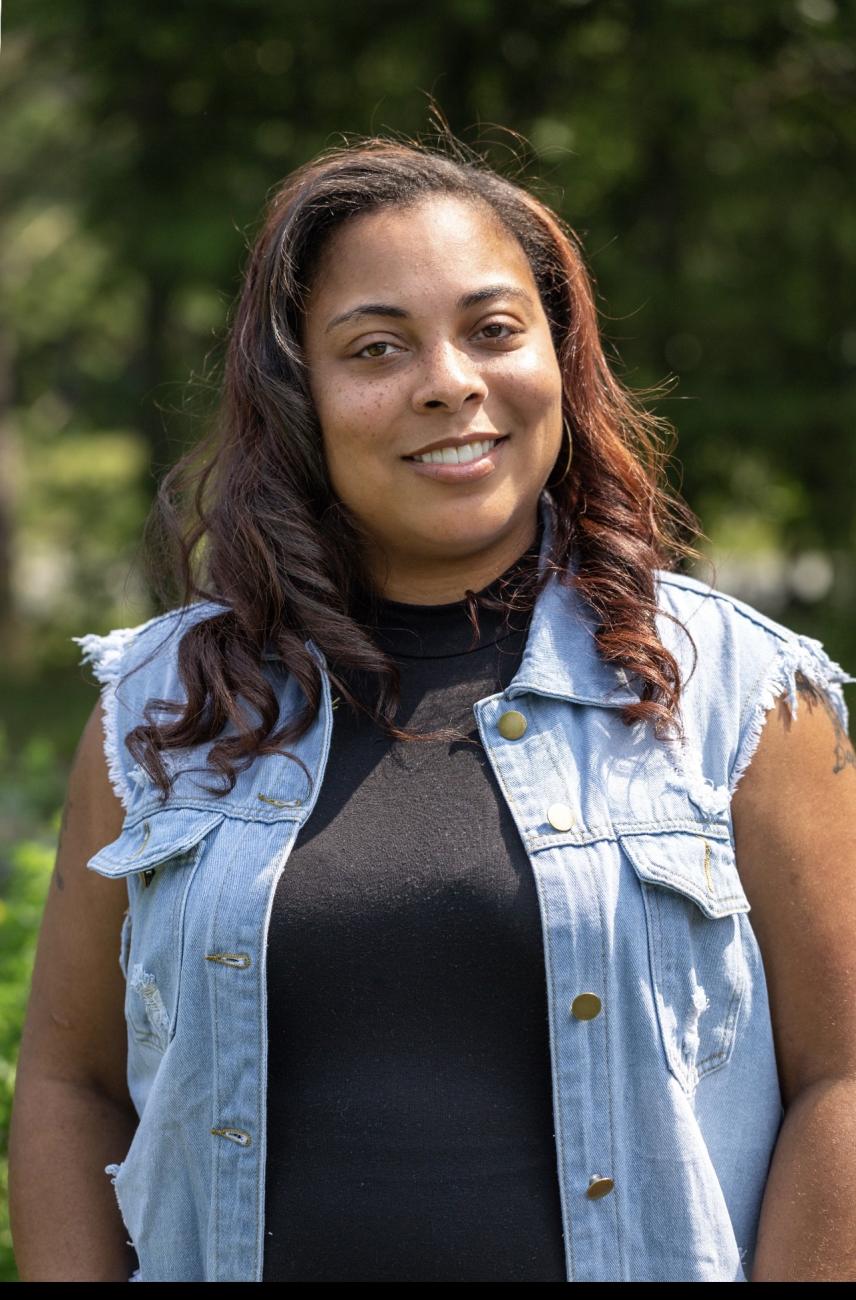
Emunah Evans
Community Advocacy Director/Founder
Benevolence Farm/Bonding Families
emunah@benevolencefarm.org
10:30â11:30 a.m. Breakout: Transforming Maternity Care for Black Birthing People: Relationship-Centered, Anti-Racist Practices from a Qualitative Study of High-Risk Pregnancies
Co-Authors (Not Presenting): Maggie Mangas, Fellow at Health Resources and Services Administration, mmangas@alumni.unc.edu; Dr. Kristin Tully, Assistant Professor, UNC Chapel Hill Department of Obstetrics and Gynecology, Kristin.Tully@unc.edu
Abstract: This interactive session will explore how structural and systemic factors shape maternity care experiences and outcomes of Black birthing individuals, through the accounts of those with high-risk pregnancies. We define high-risk pregnancy here as Black womenâs self-report of having gestational diabetes and or a hypertensive disorder of pregnancy. Rooted in principles of relationship-centered care and guided by a critical race lens, our qualitative research examined participantsâ accounts of clinical practices and the resulting short- and long-term outcomes of these health care interactions. Following IRB approval from Duke University, we conducted semi-structured interviews in 2023-24 with 14 Black women from North Carolina and across the United States.
Through inductive coding of transcriptions of participant accounts, our study reveals that Black birthing individuals valued respectful, emotionally present, and collaborative clinician behaviors, such as acknowledging patient expertise, engaging in shared decision-making, and building authentic relationships. These practices were consistently linked to increased trust, greater satisfaction, and improved health outcomes among the Black women. Our findings highlight the urgent need for systemic change to equip and support health care team members to prioritize what matters most to Black birthing individuals and transform maternity care for all.
This session will:
- Illuminate the structural roots of disrespect and inequity in maternity care for Black birthing individuals in the United States through synthesizing literature on historical and contemporary structural drivers.
- Present original research findings on Black birthing individualsâ accounts of positive maternity health care practices through a lens of relationship-centered care and critical race theory.
- List and discuss actionable strategies for implementing interventions that foster respectful, equitable, and supportive maternity care.
By centering the lived experiences of Black birthing individuals and focusing on opportunities to enhance health care services, this workshop aims to empower individuals and organizations to drive meaningful change toward equity and justice in maternal and infant health.
Learning Objectives:
- Identify Structural Barriers: Participants will be able to recognize and articulate key structural and systemic barriers that contribute to poor maternal and infant health outcomes among Black birthing persons in the United States.
- Apply Relationship-Centered Care Principles: Participants will increase their knowledge of patient priorities in relation to clinician interactions in maternity care and learn how to apply relationship-centered care practicesâgrounded in a critical race frameworkâto foster respectful, equitable, and supportive clinician-patient interactions.
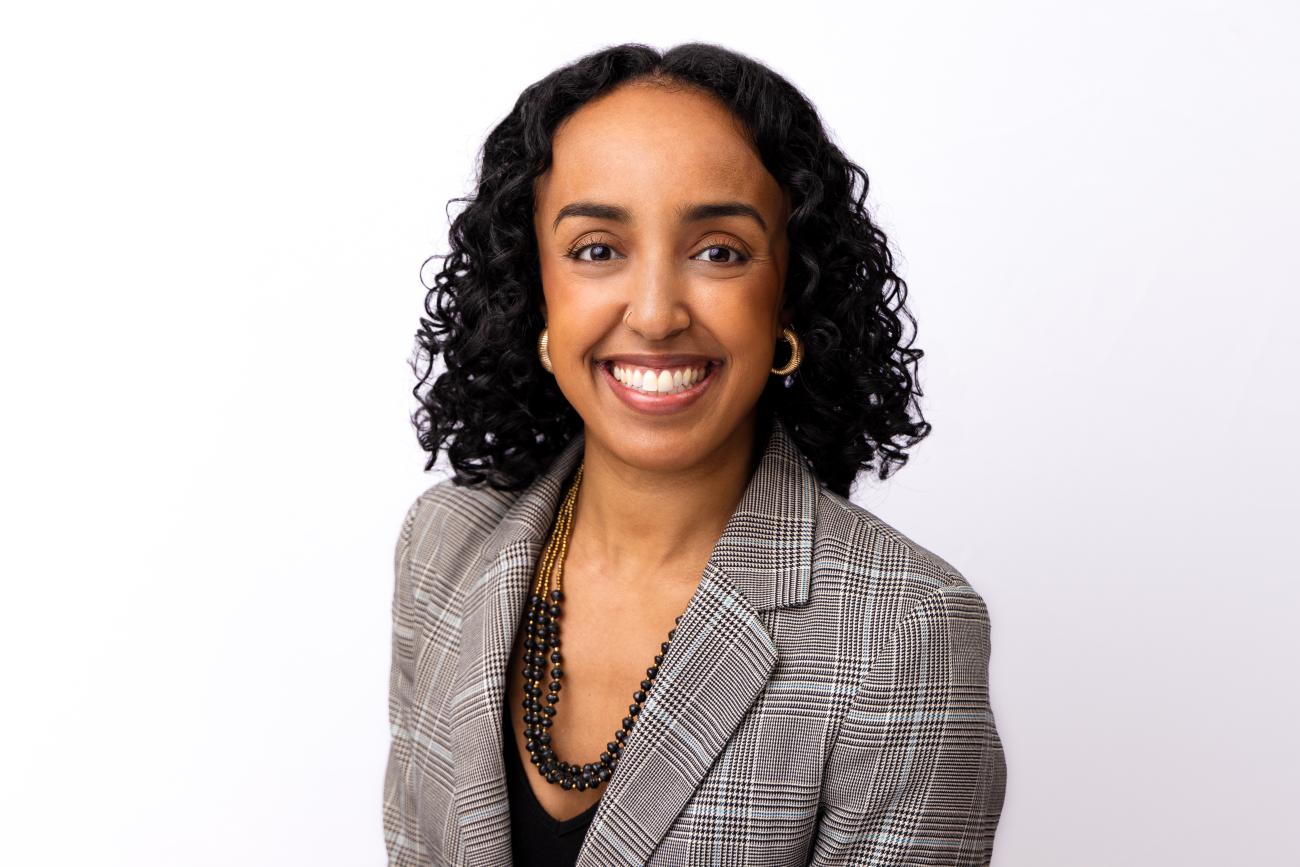
Shewit Jaynes, PhD, MSPH, RN
Postdoctoral Fellow
Durham VA & Duke University School of Nursing
shewit.weldense@duke.edu
10:30â11:30 a.m. Breakout: From Grief to Prevention: Tackling Preventable Stillbirth through Systems Change and Collective Power
Stillbirth remains a silent crisis in the U.S., impacting over 20,000 families each year and disproportionately devastating Black communities. Many of these losses are preventable. Yet prenatal care often fails to detect or respond to key warning signsâsuch as fetal growth restriction, placental abnormalities, preeclampsia, and notably, changes in fetal movementâuntil itâs too late. Racial bias, misinformation, and inconsistent protocols undermine providersâ ability to act and patientsâ ability to be heard.
This interactive session, led by Ana Lepe Vick (PUSH for Empowered Pregnancy) and Tomeka Isaac (Jaceâs Journey) explores how standardizing fetal movement education and clinical response can advance reproductive justice and improve Black infant health outcomes.
We will open with PUSH, a provocative 7-minute short filmâand core component of the new âStillness Is An Illnessâ campaignâthat explores the critical impact of addressing (or dismissing) altered fetal movement in the third trimester.
Through lived experience, community-led advocacy, and emerging research, this session will highlight practical, equity-driven strategies for identifying and intervening in risk factors before babies are in distress. Participants will engage in solutions-focused dialogue on implementing culturally responsive educational tools and clinical protocols to ensure providers âhear herâ when concerns are raised, especially by Black mothers who often feel their concerns are disregarded or downplayed.
Attendees will leave with actionable insights to integrate these practices into their own clinical and public health, or community work, improving outcomes for all families.
Learning objectives:
By the end of this session, participants will be able to:
- Identify gaps in current prenatal care protocols that contribute to preventable stillbirth, especially in Black communities.
- Describe the importance of standardized fetal movement education for both patients and providers.
- Apply equity-centered approaches to integrate stillbirth prevention strategiesâsuch as early detection of cord or placental issues and respectful clinical response to patient concernsâinto their work.
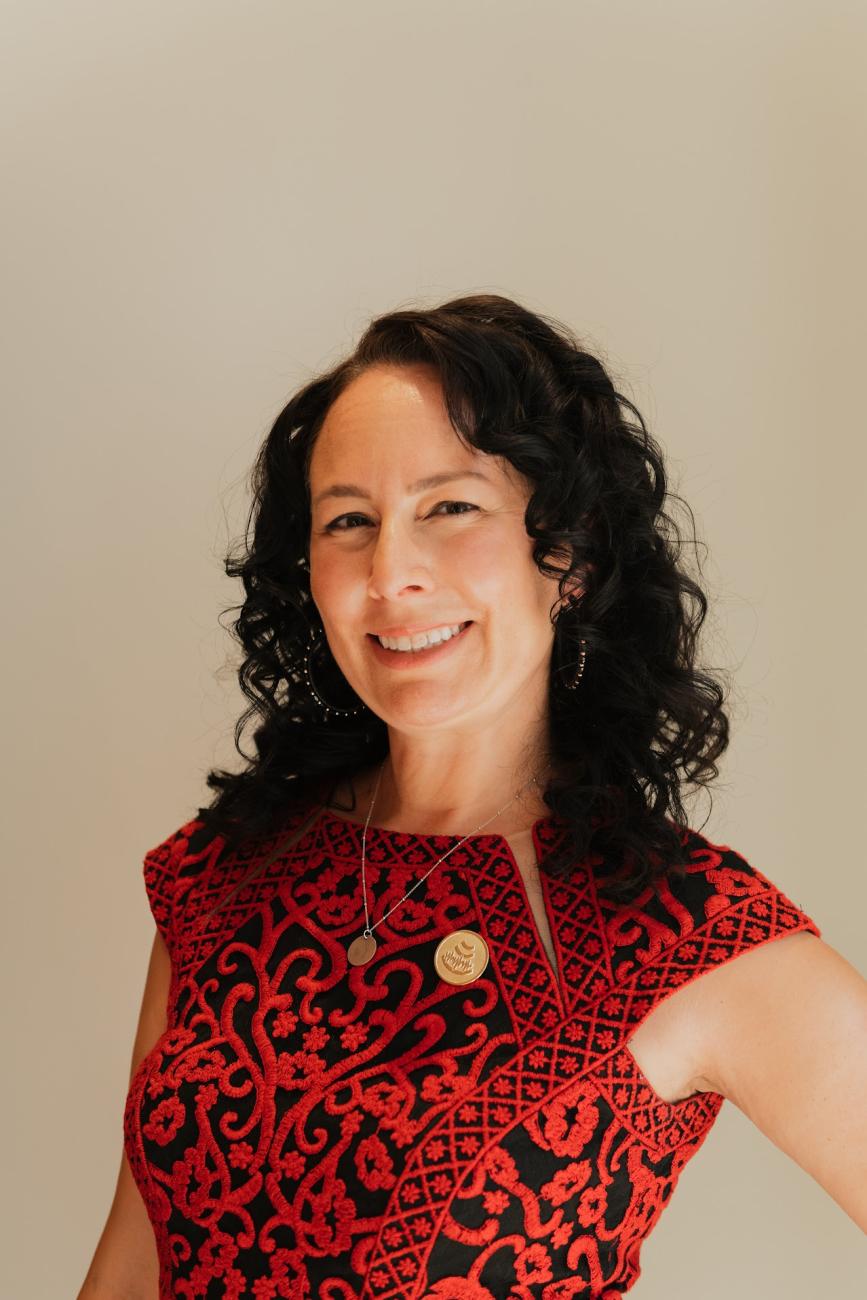
Ana Lepe Vick
Founder and Director of Communications
PUSH for Empowered Pregnancy
ana@pushpregnancy.org
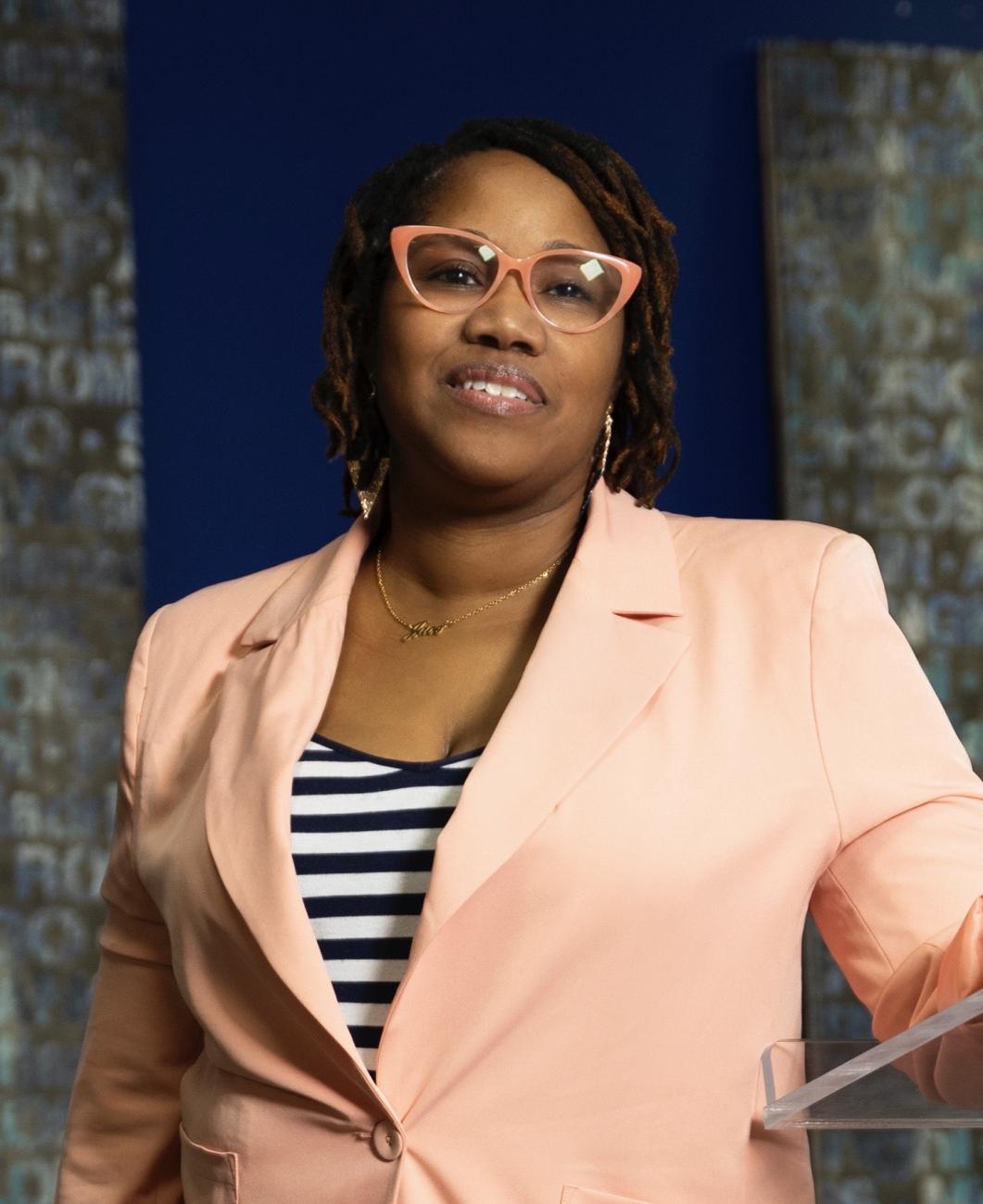
Tomeka James Isaac
Executive Director
Jaceâs Journey
tomekajamesisaac@gmail.com
12:45â1:45 p.m. Breakout: Centering Black Mothersâ Voices: Addressing Systemic Barriers to Equity in Maternal and Infant Outcomes
This presentation shares data from a community-engaged research initiative in Forsyth County, NC, led by a team of Black mothers. It provides insights on healthcare access, resources shared, provider trust, and decision-making participationâtopics that contribute to disparities.
The session will highlight strategies used to elevate Black maternal voices, such as training Black mothers as researchers, and incorporating their lived experiences into creating a survey and hosting focus groups, data collection, analysis, and presentation to community, to stakeholders, and to academics. Survey results were triangulated with focus group responses. Our work highlights the opportunity and need to improve trusting relationships with providers, feeling included in decision-making, having all treatment options explained, and having all physical, mental, and emotional concerns fully addressed for Black mothers. By Mothers researchers evaluated this data, proposed strategies for community and providers, and are actively working on collective action with the goal of eliminating disparities. This work is a testament to community-driven, action-oriented approaches that can serve as solutions for the maternal health crisis.
Since this work started, the administrative barriers for doulas have been eliminated at all hospitals in Forsyth County, NC. This presentation will reinforce the importance of recognizing and dismantling systemic obstacles that perpetuate disparities, emphasizing the power of centering marginalized voices to inspire systemic change.
Learning Objectives:
- Understand the systemic and structural factors that contribute to Black-White disparities in maternal and infant health outcomes.
- Identify actionable ways to incorporate community voicesâparticularly Black mothersââinto research and program development to influence equitable systemic change.
- Develop strategies for fostering trust, cultural responsiveness, and shared decision-making within maternal health systems.

Tiara Morris
Lead Researcher/Community Doula
By Mother-Action4Equity
tiara@action4equityws.org
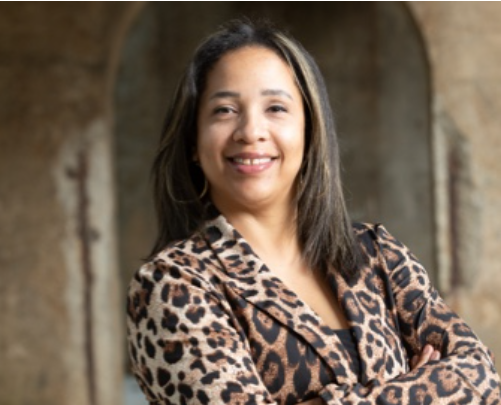
Sharlee Hainesworth
Director of Community-Based Research
Action4Equity
sharlee@action4equityws.org
12:45â1:45 p.m. Breakout: Compassionate OB Care
For many, pregnancy, labor, and delivery, and postpartum are deeply personal milestones. Yet for individuals with a history of trauma including childhood adversity, sexual violence, medical mistreatment, or racialized obstetric harm; these events can resurface emotional wounds and lead to retraumatization.
This workshop focuses on the urgent need to deliver trauma-informed maternity care that addresses not only individual behaviors, as well as the systemic structures that perpetuate harm. This workshop centers on acknowledging retraumatization in maternity care, to examine the systemic roots of perinatal trauma such as implicit bias, medical paternalism, historical mistreatment, and lack of culturally responsive care, and advocate for sustainable, equity-driven solutions.
Rooted in a trauma-informed framework, the presentation invites participants to reimagine maternity care through the lens of safety, trust, autonomy, and collaboration. It moves beyond surface-level interventions to challenge the institutional policies and power dynamics that disproportionately affect marginalized birthing people, especially Black and low-income families. Using real-world scenarios and patient narratives, the workshop will illuminate how seemingly routine practices can mirror past traumatic experiences and erode trust.
Participants will explore how institutional protocols, staffing models, documentation practices, and provider training can be transformed to reduce harm and promote healing. This includes advocating for policies that prioritize continuity of care, culturally responsive perinatal education, and interdisciplinary collaboration across maternal health services. Rather than viewing retraumatization as an isolated event, the workshop calls on healthcare members to build or check systems that prevent or minimize trauma, not just react to it. Grounded in both evidence and lived experience, offering actionable strategies to promote psychological safety and creating environments where birthing people feel seen, heard, and respected.
Attendees will leave empowered not only to change how they deliver care but also to contribute to a more equitable, accountable, and compassionate maternity care system.
Learning Objectives:
- Learner will describe 3 ways trauma impacts maternal health.
- Learner will identify 3 strategies to provide trauma-informed care.
- Learner will evaluate 1 systemic structure/policy to align with trauma-informed care.
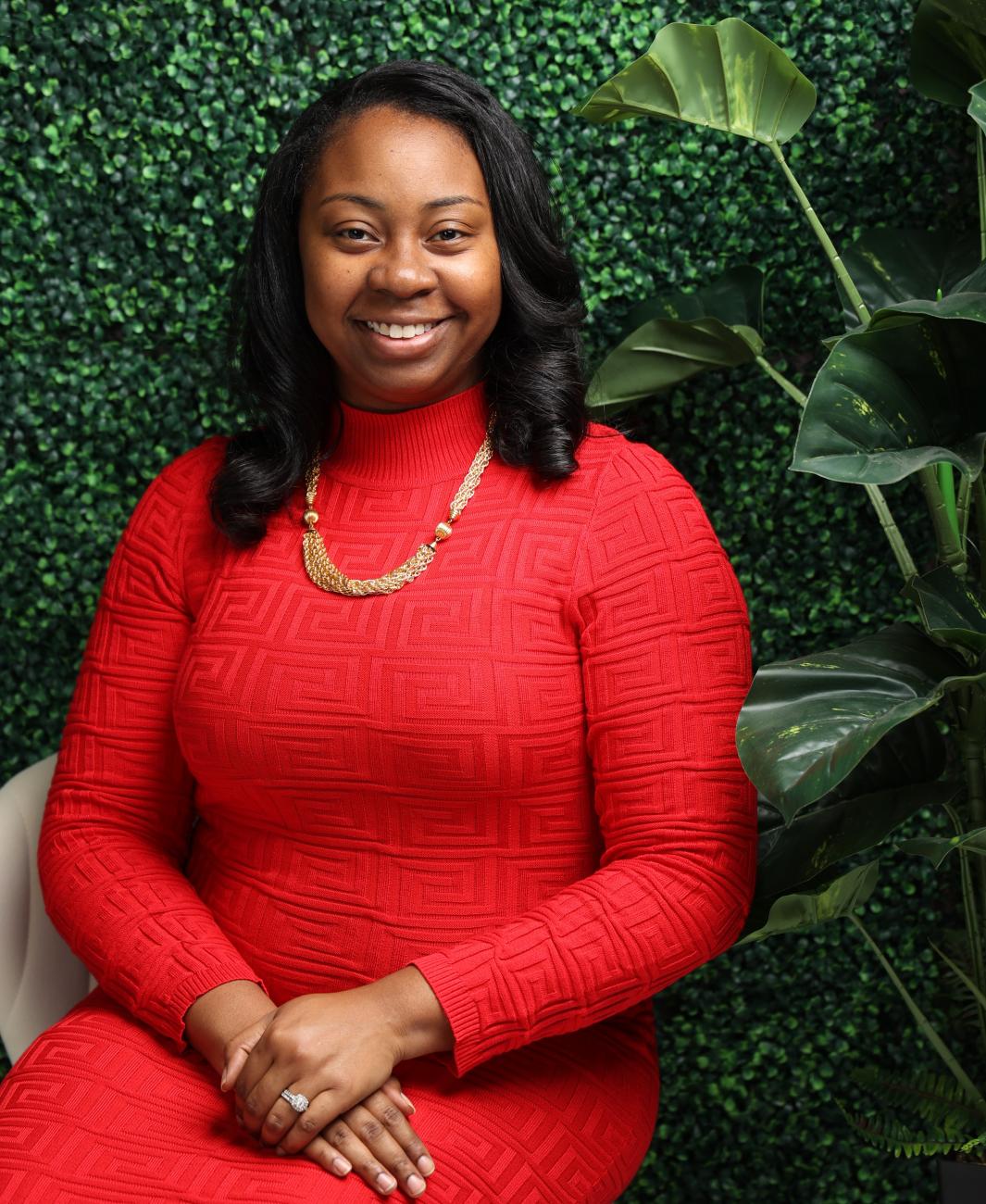
Lorraine Wilson Batts
RN Nurse Educator
Lorraine Nurse Consulting
lorraine@lorrainenurseconsulting.com
12:45â1:45 p.m. Breakout: The Invisible Struggle of Black Fathers and the Subsequent Impact on Black Maternal Health
This workshop centers on the cognitive development of bias and the unconscious formation of belief systems that drive behavior, influence decision-making, and ultimately reinforce inequities within institutions, including those that shape maternal and infant health outcomes. Through The Diggs Method, an interdisciplinary framework rooted in cognitive behavioral therapy, transformative learning, and cultural analysis, participants will explore how habitual thought patterns and implicit bias are formed and maintained from early life experiences through adulthood.
Drawing from psychological research, historical examples like the Doll Test, and principles from systems thinking, this session unpacks how structures of race, power, and conformity become embedded into our neural and social programming. By understanding how System I (fast, automatic thinking) and System II (slow, deliberate thinking) operate, attendees will gain insight into how bias can become automatic and unchallenged, even among well-meaning professionals.
While not focused directly on infant health outcomes, the session offers critical insight into how bias develops in individuals and communities, setting the foundation for systemic inequities. These insights are especially relevant for healthcare professionals, policymakers, and community leaders who seek to dismantle disparities from the root. Participants will be introduced to practical tools within The Diggs Method to identify, interrupt, and reprogram maladaptive patterns in both personal and professional contexts.
By cultivating cognitive flexibility, enhancing self-awareness, and embracing discomfort as part of the change process, participants will be better equipped to transform the systems they inhabit, creating conditions that more equitably support Black birthing persons, families and communities.
Learning Objectives:
- Participants will be able to explain how implicit and structural bias are formed and sustained and how these dynamics impact institutional behavior, including in maternal and infant health systems.
- Participants will be able to apply principles of The Diggs Method to identify and reframe cognitive habits that may contribute to systemic inequity, particularly in professional roles.
- Participants will be able to describe the connection between habitual thinking, implicit bias and disparities in healthcare quality for Black infants and birthing people.
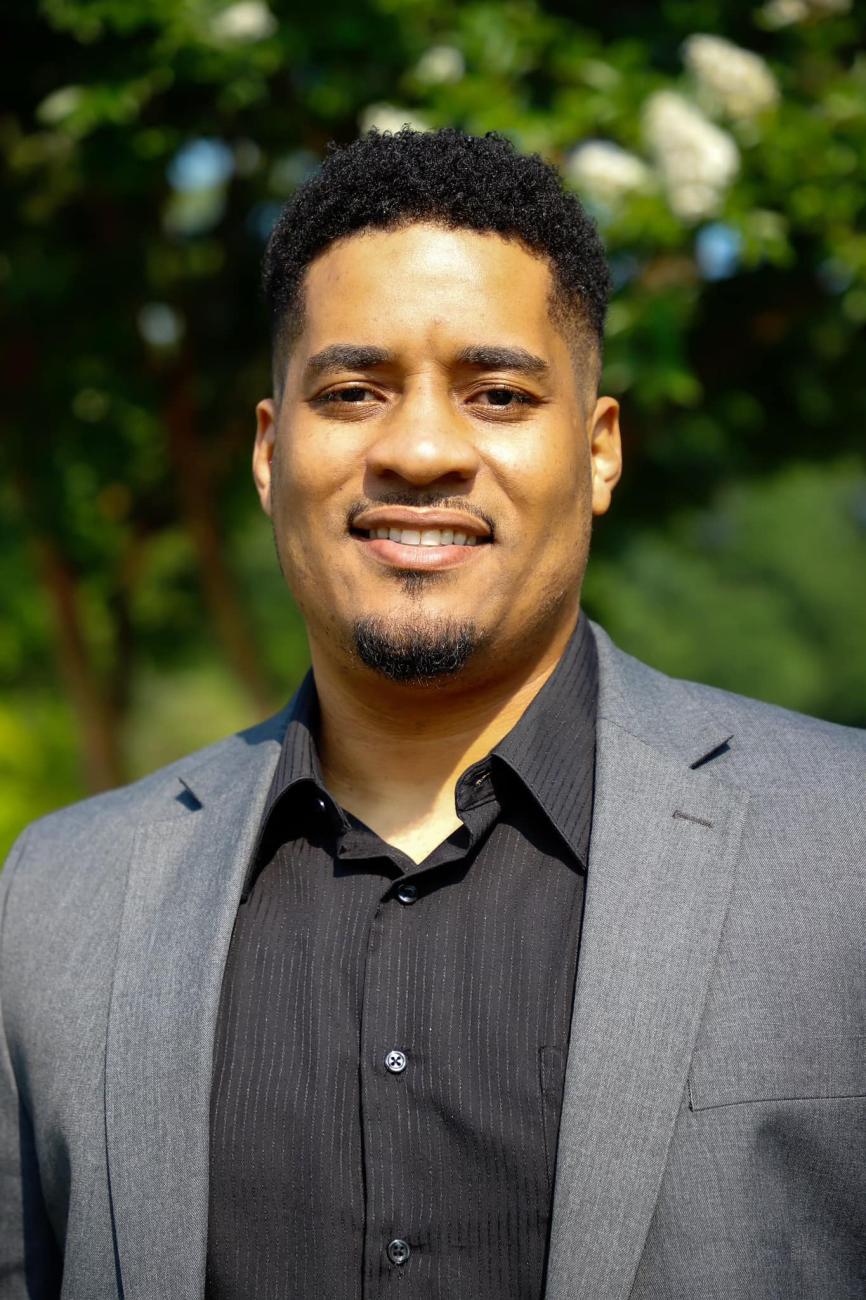
Brandon Diggs Williams Sr.
Therapist â LCSW
The Center of Transformation, PLLC
thecenteroftransformationpllc@gmail.com
Interactive Session: Shifting the Lens: Applying the Groundwater Analysis to Transform Systems
In this hands-on, thought-provoking session, participants will explore how racism operates not just at the individual level, but as a systemic force embedded in policies, practices, and institutions. Using the Groundwater Analysis of Racism as a foundational framework, attendees will have the opportunity to critically examine the work of their own organizations and identify where they may be addressing symptoms rather than root causes of Black maternal and infant health outcomes. This session will challenge participants to move beyond individual interventions and toward strategic, systems-level change. Together, we will co-create bold, equity-driven approaches to maternal and child health that center justice, creativity and accountability.
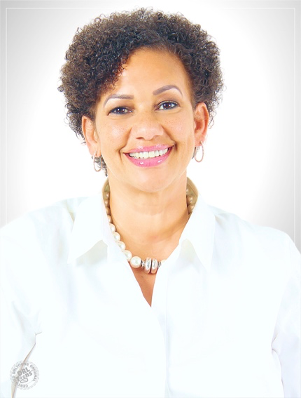
Deena Hayes-Greene
Black Pearls Society
Racial Equity Institute
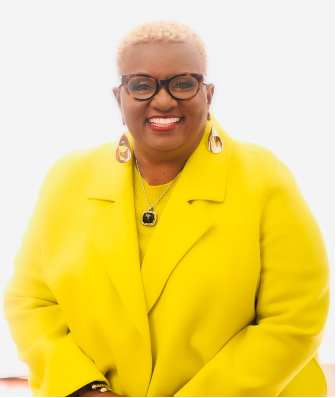
Monica Walker
Black Pearls Society
Racial Equity Institute
Conference Speakers and Presenters
Bree Newsome Bass
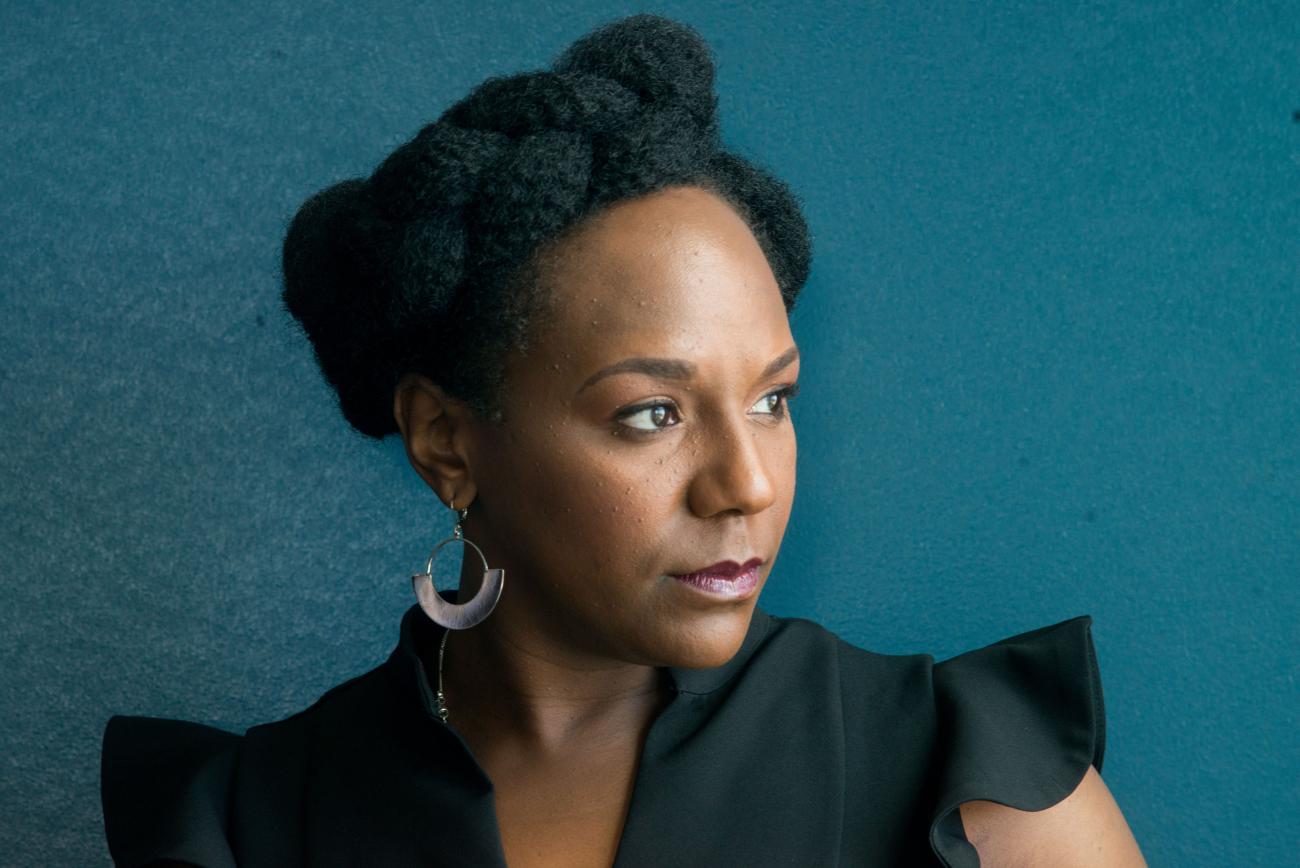
Bree Newsome Bass is an award-wining filmmaker, musician, writer, activist and public speaker. She is most widely recognized for her actions in 2015 when she scaled a flagpole at South Carolinaâs capitol building to remove the Confederate battle flag in protest of systemic racism following the racially-motivated murders at Emanuel AME, an historically Black church in Charleston. South Carolina first raised its confederate flag in the 1960s as a statement of opposition to the Civil Rights Movement and refused to lower it, even after the assassination of South Carolina state senator Clementa Pinckney and 8 others by a white supremacist during a prayer meeting at their church. Breeâs daring act of protest increased public pressure on the state legislature and they removed the flag permanently a few days later. Her protest also inspired the removal of numerous other confederate flags and monuments nationwide and helped spark a reckoning with the legacy of slavery and racism in the United States. As part of her continued advocacy, Bree has helped develop several non-profit and grassroots organizations while constantly speaking out and campaigning in support of human rights, democracy and economic justice. Bree is the recipient of an NAACP Image Award and an honorary doctorate from Garrett-Evangelical Theological Seminary among other accolades. Bree currently resides in Raleigh, NC with her husband Marcus Bass and her son Marcus Bass, Jr. (4) where she continues both her creative work and public advocacy.
Dr. Michele Benoit-Wilson

Dr. Michele Benoit-Wilson is a board-certified OB/GYN, health equity strategist, and founder of HerHealthMD, PLLC, a health education company focused on dismantling medical misinformation and strengthening advocacy for girls, women, and families. A proud graduate of Brown University, where she earned both her undergraduate and medical degrees, she completed her OB/GYN residency at Pennsylvania Hospital of the University of Pennsylvania Health System.
With over 25 years of clinical experience, Dr. Benoit-Wilson brings a lifelong commitment to empowering communities through culturally rooted care and systemic reform. As Medical Director for Womenâs Health and Utilization Review at a NC Medicaid plan, she has led benefit enhancementsâincluding expanding doula access for high-risk populationsâand collaborated on evidence-based strategies that improve maternal outcomes. She bridges clinical, corporate, and legislative platforms to center communication and dignity in maternal health, serving on the Board of Directors for Family Connects International and contributing to the Acure4Moms Study, a five-year clinical trial addressing racial disparities in maternal outcomes.
HerHealthMD amplifies inclusive messaging via social media and public writing, connecting trusted medical insight with public discourse. As a seasoned speaker trained in evidence-based communication, Dr. Benoit-Wilson partners with policymakers, including Senator Natalie Murdock, in a bipartisan approach to advance reproductive justice and health equityâbringing a compassionate and courageous voice to todayâs maternal health landscape.
Tina Braimah

Tina Braimah, MSN, CNM, CPM, is a midwife, herbalist, and unapologetic advocate for BIPOC birthing people. She is the founder and Executive Director of Aya Birth & Community Wellness, the stateâs only Black-owned, midwife-led birth center. With over 25 years in womenâs health and a legacy of âfirstsâ behind herâNorth Carolinaâs first Black Certified Nurse Midwife (CNM) attending home births and first Black Certified Professional Midwife (CPM)â Tina is a leading voice for reproductive justice and birth equity.
She also founded Legacy Birth Academy, a workforce development program which seeks to decrease maternal health disparities by increasing diversity among out-of-hospital birth workers. Her herbal product line, Gracie Deolaâs Natural Wellness Remedies, is yet another way that she is reclaiming wellness and autonomy for the community.
Tinaâs work blends clinical expertise, ancestral traditions and community wisdom, to reimagine change systems that shape Black maternal and infant health in North Carolina and beyond.
Emunah "Mona" Evans

Mona Evans is a mother of three, community advocate, and founder of Bonding Families, a nonprofit dedicated to supporting family reunification and healing for justice-impacted families. After serving a 4Â―-year prison sentence, Mona transformed her lived experience into a mission to dismantle the barriers Black mothers face during and after incarceration. Now the Community Advocacy Director at Benevolence Farm in North Carolina, she leads reentry programs that center holistic care, family connection, and economic empowerment. Through her work, Mona amplifies the voices of formerly incarcerated Black women and advocates for maternal and infant health equity, housing justice, and second chances.
Deena Hayes-Greene

Deena Hayes-Greene's lifeâs work is inspired by profound gratitude for the courage and wisdom of those who paved the way for more equitable and connected communities. Through her leadership of the Racial Equity Institute and the Groundwater Institute, she fosters a vision of inclusion and justice. In Guilford County, her dedicated leadership as School Board Chair and Chair of the International Civil Rights Center and Museum showcases her deep commitment to ensuring that every individual has the opportunity to thrive. Guided by the legacy of civil rights pioneers and community elders, Deena clarifies our shared humanity, addresses systemic barriers, and drives transformative change in institutions and communities nationwide.
Sharlee Hainesworth

Sharlee Hainesworth is the Director of Community-Based Research and Family Engagement at Action4Equity and the Program Manager of By Mothers, a transformative initiative that engaged nearly 250 Black mothers to center trust, lived experience, and community-driven solutions in maternal health. A devoted mother, researcher, and advocate, Sharlee works to ensure that Black womenâs voices shape the policies and practices that affect their lives. She is now focused on advancing the By Mothers research recommendations across the Piedmont Triad region and statewideâbuilding power through collective advocacy and systems change. Her work bridges research and action, moving beyond documentation to mobilize communities and institutions toward equity and liberation.
Tomeka James Isaac

Tomeka Isaac, MBA, MHRM, CAMS, PMH-C, is a maternal health advocate, educator, and grief support coach dedicated to transforming the systems that failed her. After the heartbreaking loss of her son Jace Alexander and a near-death experience due to H.E.L.L.P Syndrome in 2018, Tomeka co-founded Jaceâs Journey with her husband to raise awareness of maternal and fetal health disparities, particularly in Black communities.
She is a recognized leader in reproductive empowerment and health equity, awarded the 2022 YWCA Central Carolinas Woman of Achievement âCommunity Championâ award. Tomeka collaborates with national and local organizations such as March of Dimes, MomCongress, and Healthy Birth Day, Inc, to advocate for better outcomes for families impacted by pregnancy and infant loss.
As a certified perinatal mental health professional (PMH-C), Tomeka brings specialized knowledge to supporting individuals and families navigating grief, trauma, and postpartum mental health challenges. Her work spans education, storytelling, community engagement, and digital advocacy.
Through her upcoming memoir Jaceâs Journey: Grief, Survival, and the Fight for Us and her podcast Unspoken: Breaking the Silence of Pregnancy Loss, Tomeka continues to be a powerful voice for changeâensuring no parent walks this path alone.
Dr. Shewit Jaynes

Shewit Jaynes, PhD, MSPH, RN is a nurse scientist in the National Clinician Scholars Program (NCSP) with a clinical background in medical-surgical and postpartum nursing. She earned her Master of Science in Public Health (MSPH) in Health Policy and Management from the UNC Gillings School of Global Public Health and completed her PhD at Duke University School of Nursing. Her dissertation research, supported by an F31 predoctoral fellowship from the National Institute on Minority Health and Health Disparities (NIMHD), investigated the relationships between gendered racism, resilience, and high-risk pregnancy among Black women, using national longitudinal data. Dr. Jaynes leverages her lived experience as a Black woman, mother, clinical experience caring for postpartum individuals, and interdisciplinary training in nursing, public health, and policy to inform her passion and unique perspective on addressing maternal health inequities. Dr. Jaynes is dedicated to (1) critically examining social determinants of health and structural inequality and (2) leveraging a community-engaged approach to design interventions and inform policy solutions to address racialized maternal health inequities.
Sen. Natalie Murdock, D-N.C., 20th District

As a native North Carolinian, UNC alum, and local elected official, Natalie has spent a lifetime learning about the strengths and challenges of North Carolina. She has committed her life to public service. She is the NC State Senator for District 20, which encompasses Durham and Chatham Counties.
She was the first woman of color under 40 to be elected to the NCGA and was elected in 2020 earning over 100 thousand votes. She is dedicated to pursuing a progressive agenda that will transform the lives of hardworking North Caroliniansâserving over three terms - filing 100s of bills that range from supporting black maternal health, economic development, and expanding healthcare access for ALL to providing greater access to the ballot.
Senator Murdock serves as the South Region Coordinator for NOBEL Women, on the Executive Board for the North Carolina Legislative Black Caucus, and various boards at UNC Chapel Hill. She was awarded the environmental activism award by the National Caucus of Environmental Legislators, a March of Dimes award, the Susan B Anthony Award from the NC Equal Rights Amendment (ERA) Alliance, and was featured in Essence Magazine for her work with black maternal health.
Tiara Morris

Tiara Morris is a dedicated advocate and the lead researcher for the By Mothers Maternal Health Project with an extensive background that includes being a two-time published trained researcher. As a proud Black mother of three born and raised in the Triad, Tiara combines personal experience with professional passion to empower and support women in her community. She is a full sprectrum community-based doula serving the Triad and the owner of Total Maternal Support. Through her work, Tiara partners with various local organizations to address and bridge the gaps in support for expecting and postpartum BIPOC. Her vision is to improve infant and maternal health outcomes while bringing awareness to reproductive justice combating the disparities that contribute to higher mortality rates in marginalized communities. Tiara is committed to fostering a more equitable health environment for mothers and their families.Through her tireless efforts, Tiara is not just a caregiver; she is a catalyst for change, dedicated to uplifting and centering the voices of women and children in the quest for equitable healthcare.
SteâKeira Shepperson

SteâKeira Shepperson is the owner and founder of Triangle Doulas of Color, LLC, a birth and postpartum doula agency serving the Raleigh-Durham area of North Carolina. She guides the vision of her company from her training and experience as a Certified Birth Doula, Postpartum Doula, Childbirth Educator, doula mentor, community-builder, and mother. She is committed to supporting women and families through the journey of pregnancy, birth, and postpartum to help them have the healthiest and most satisfying experience possible.
At ten-years-old, SteâKeira witnessed birth for the first time, when her niece was born. She was fascinated with pregnancy and awe-struck by the birthing process. Over the years, she found herself attending the births of many family members and friends, before finding her way into doula work. In the Spring of 2011, she earned her Bachelor's degree in Health Education/Health Promotion (Public Health) and Spanish from Radford University. She concentrated her studies on maternal and infant health and health disparities in the African American community. After college, she worked as an Administrative Assistant, later, Practice Manager of a midwifery practice for nearly five years. There, she discovered her passion for helping families navigate the healthcare system during their journey into parenthood. In 2015 she began volunteering as a birth assistant, then she went on to be trained as a birth doula by DONA International in 2017.
She has worked in UNCâs Birth Partners volunteer doula program as well as ÐĄŧÆŅžĘÓÆĩMedâs doula partnership. After learning about the shocking statistics surrounding the Black maternal health crisis, SteâKeira embarked on her journey of launching Triangle Doulas of Color, LLC in an effort to help improve health outcomes through education, advocacy, support, and community-building. As a new mother herself, she also started hosting a monthly momâs group, Triangle Mamas of Color, to help foster community amongst local mothers of color. She has also served the public by providing text support via the CovidMoms Helpline to answer questions about Covid-19, connect families to resources, and give information about prenatal care and birth. She served as a co-chair on the North Carolina Institute of Medicineâs Maternal Health Task Force (2020-2021) and has participated in the Perinatal Health Equity Taskforce over the years. SteâKeira uses her platform to speak publicly about maternal health, doula support, and topics related to motherhood and entrepreneurship.
As she works with new families, education, support, and community remain at the forefront of the mission. Providing space for exploration of options and creating a network of support for navigating the challenges and triumphs of parenthood are essential priorities in the work she does. As an agency owner and doula mentor, she also works to improve sustainability and support for her fellow birthworkers. She plans to continue this work in an effort to make a positive impact in the lives of mothers, families, and future generations.
Ana Vick

Ana Lepe Vick is a bilingual Latina maternal health advocate who transformed personal tragedy into purpose after the stillbirth of her son, Owen, in 2015. She is a founding member and Director of Communications for PUSH for Empowered Pregnancy and serves as the Latinx Influencer Advisor for Count the Kicks. Committed to equity in prenatal care, Ana works to ensure all familiesâespecially those from marginalized communitiesâhave access to life-saving, evidence-based education.
As a certified MoMMAâs Voices Patient Family Partner, Ana regularly educates healthcare providers about stillbirth prevention, postpartum mental health, and trauma-informed care. Her lived experienceâincluding Owenâs crash C-section and death, two miscarriages, and a high-risk pregnancy after lossâdrives her ongoing commitment to systemic change.
Through PUSHâs collective efforts, Ana helps lead national campaigns such as the PUSHshort film and PSA, the Big PUSH March in D.C., and legislative advocacy. PUSH also contributed to the expansion of specialized care models by funding and helping train providers at the first U.S. Rainbow Clinic at Mount Sinai to improve outcomes for families pregnant after loss.
Ana's advocacy has been featured in numerous news segments and publications including What to Expect, The Fuller Project, CBS News, ąĘ°ųīĮąĘģÜēúąôūąģĶēđâs Before a Breath film, and the Birth Trauma Mama Podcast. Ana believes improving care and outcomes is possibleâwhen we push together. #unitedwePUSH
Brandon Digg Williams Sr.

Brandon Diggs Williams, Sr. is a Licensed Clinical Social Worker and a therapist for the Department of Veterans Affairs. He provides therapy and didactic training through his private practice, The Center of Transformation, PLLC. Mr. Williams is federally certified in Cognitive Behavioral Therapy for Depression and is the creator of âThe Diggs Method.â He created a community-based initiative promoting the holistic development of Black men called âLion Tamers.â Mr. Williams is a board member with the American Group Psychotherapy Association. He is also the head of the menâs ministry with The Well Church in Greensboro, NC.
Dr. Lorraine Wilson

Dr. Lorraine Wilson Batts, DNP, RN, CNML, NPD-BC is a passionate leader in maternal and child health, combining over 18 years of nursing experience with a deep commitment to advancing health equity. As the leader of Lorraine Nurse Consulting and Devoted Family Education, she leads innovative education and training programs to improve care across the lifespan especially for birthing people and infants.
Lorraine is using her experience as a maternal health nurse and a maternal patient to reshape the maternal experience for patients to truly embody compassion patient centered-care. Outside the hospital, Lorraine supports families through childbirth education, doula care, and car seat safety for underserved communities.
Monica Walker

Monica F. Walker is a veteran organizer, artist, trainer, speaker and social activist who has spent most of her career addressing race, equity, and inclusion issues while organizing for social justice on every front. She resides in Greensboro, North Carolina, where she recently retired as Executive Director of the Office for Diversity, Equity & Inclusion for Guilford County Schools. She led the districtâs efforts to eliminate racially disparate outcomes and all other forms of bias and discrimination for Guilford County Schools, the third largest school district in North Carolina and serves approximately 72,000 students and families. In this capacity, she led a small staff of equity directors, specialists and coaches who provided professional development and equity coaching to the district's 11,000 employees. Monica is a highly regarded trainer who leads and facilitates Racial Equity and Undoing Racism trainings across the United States. Retirement now allows Monica to invest in the work of racial justice fully. She is particularly interested in helping to support systems and institutions to interrogate the root causes of racial inequity and seek effective means for addressing and eliminating systemic and institutionalized racism. She is actively involved as an organizer in her community and serves on several boards, advisories and organizational committees.
Sponsors
